Yaadha Valentine-gu (Valentine's Day)
Yaadha Valentine-gu
yaadha day (based on Yuwaalaraay yaay, 'sun' and a form of -Ga 'in, at, on')
-gu of
gayaa happy
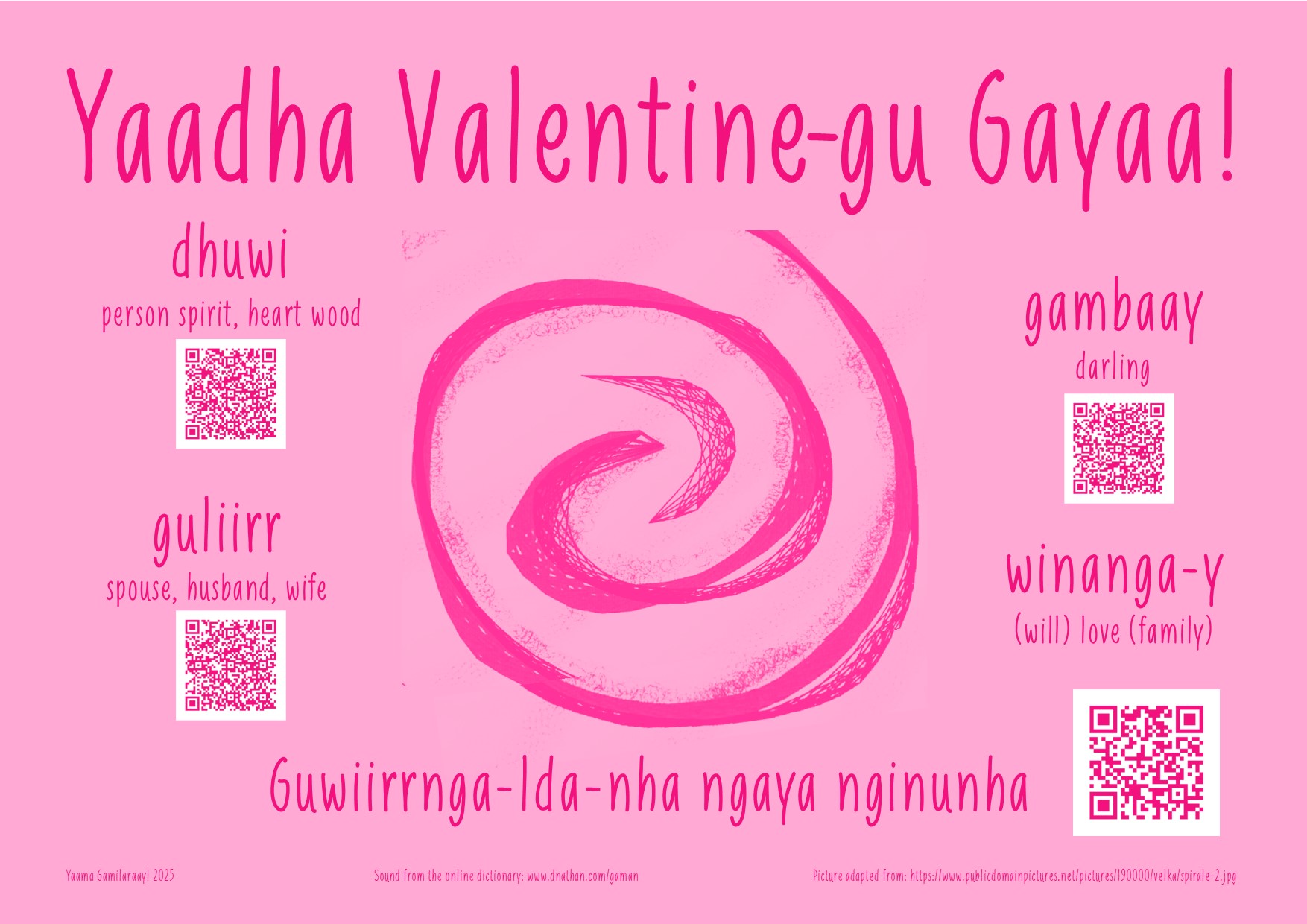
Download a pdf: Valentines-Day_2025.pdf
One of the children at our Early Learning Centre drew spirals for his ears in 2024. For an explanation on why we have used a spiral
instead of a 'love heart' to show love in GYY, please read the explanations below.
Download the pdf of these posters here:
Valentines-Day_2024.pdf
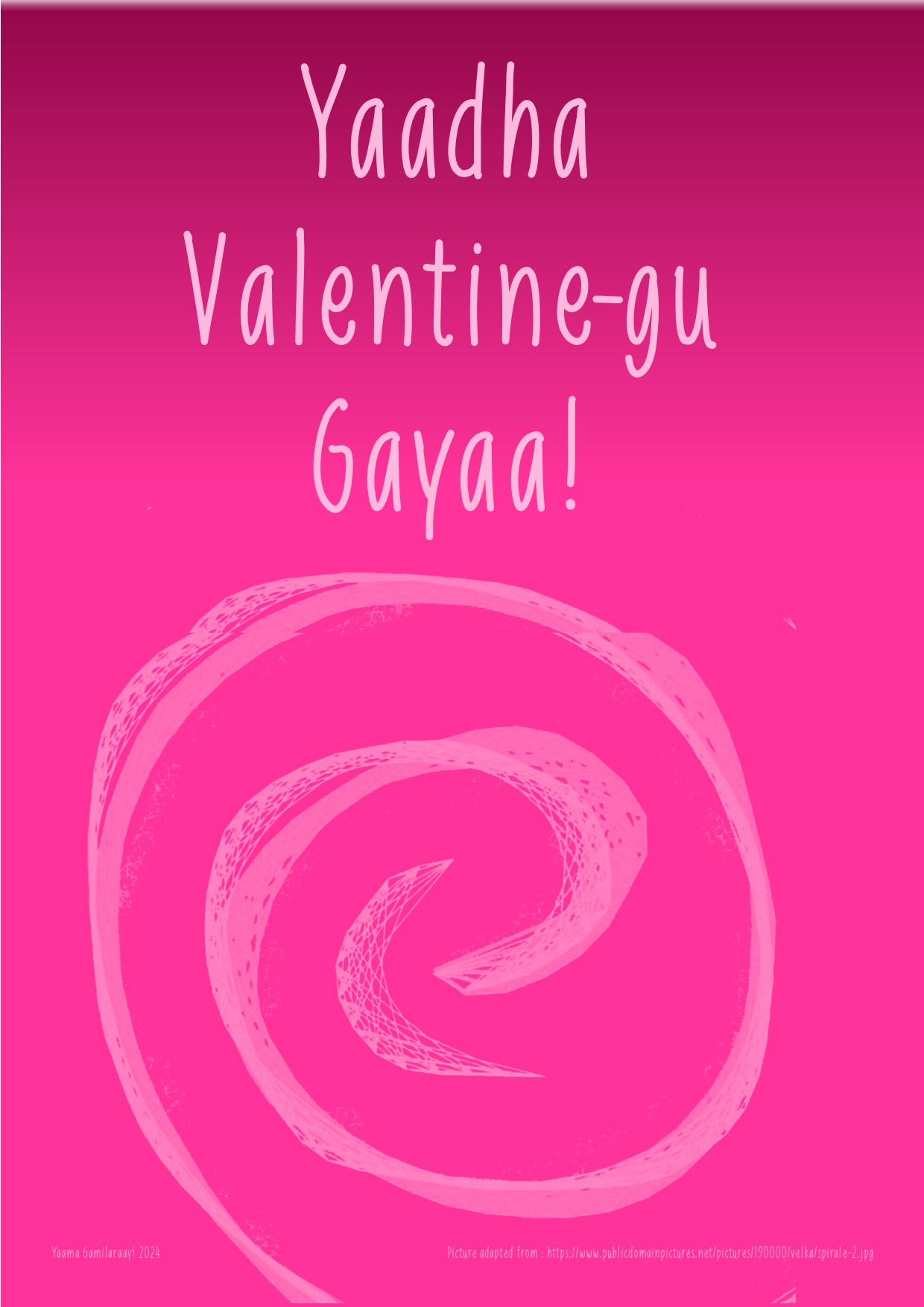
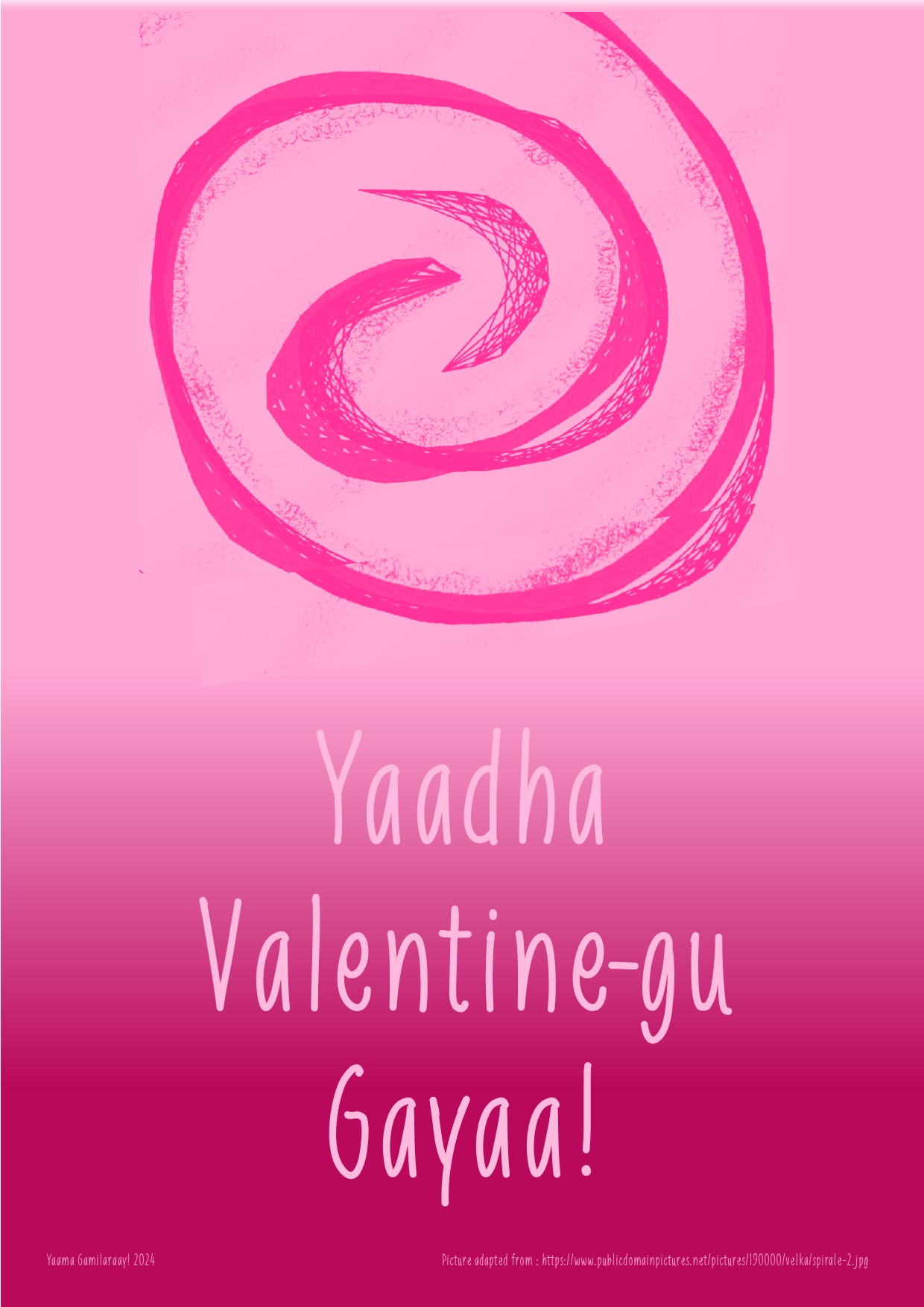
Words of love
[This discussion does not differentiate between Gamilaraay (GR), Yuwaalaraay (YR) and Yuwaalayaay (YY), but just refers to them all as
GYY. For details of traditional uses, please see the dictionary.]
In English the idea of love is often connected to our hearts. But traditionally in GYY languages, gii ‘heart’ is
also ‘gallbladder’, ‘bitter’ (also ‘blueberry’), and may be the base of the word giyal, ‘frightened’, ‘afraid’.
In GYY there is a word dhuwi: 'heartwood, person spirit'. This is the word
we are using for 'heart' in a romantic meaning.
Sound: dhuwi.mp3
And here is the GYY word for your partner, guliirr: 'spouse, husband, wife'.
Sound:
guliirr.mp3
Family love
In GYY the words for positive emotions are from bina ‘ear’, e.g. binaal ‘well-behaved’ and winanga-li
‘will hear, listen, know, think, love’; and winanga-y ‘will understand, remember, know, think, love’.
Winanga-y-la-nha ngaya nginunha: 'I love you, I
hear/understand you'
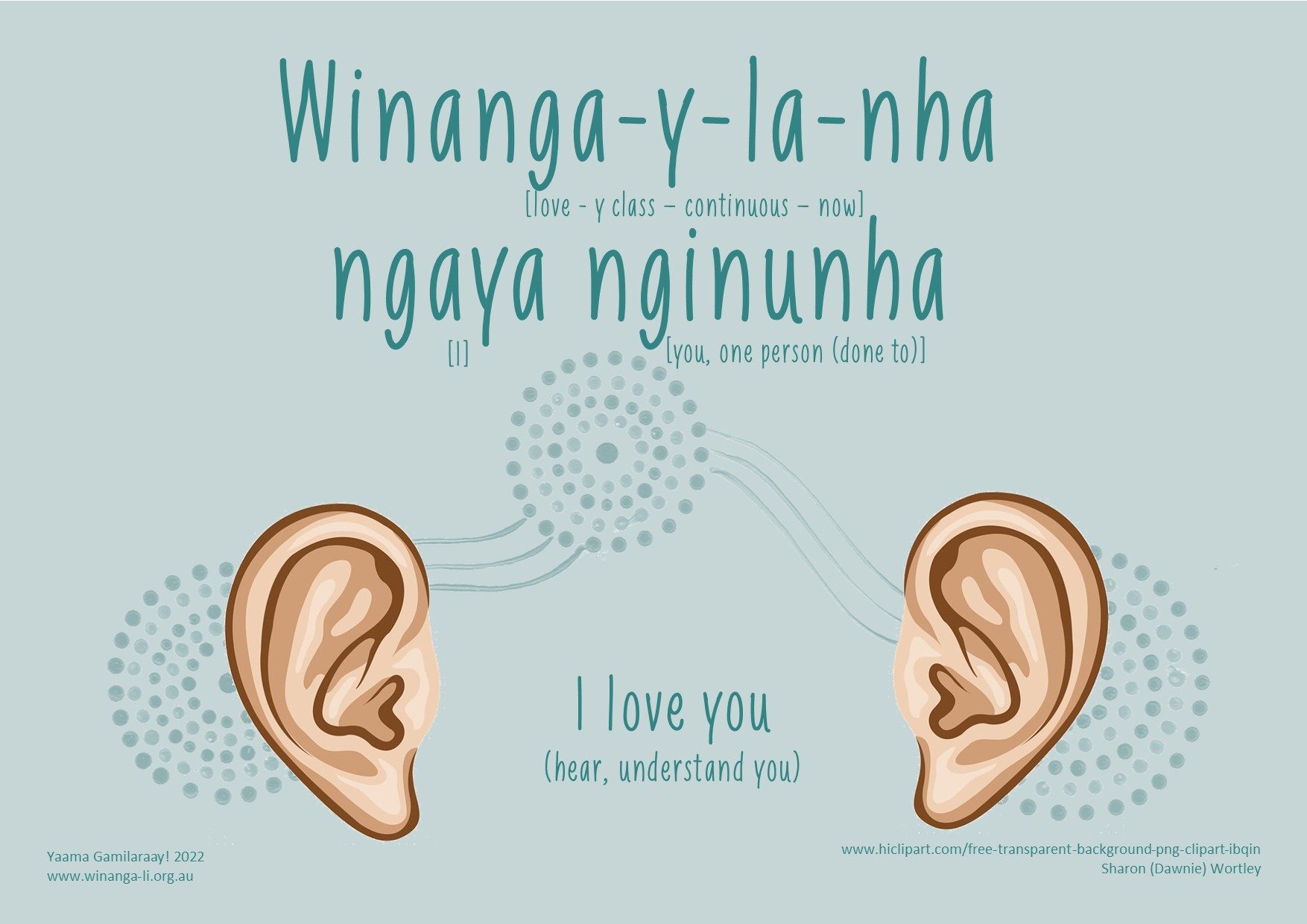
Download a pdf here: I-love-you-(family)_2022.pdf
Romantic love
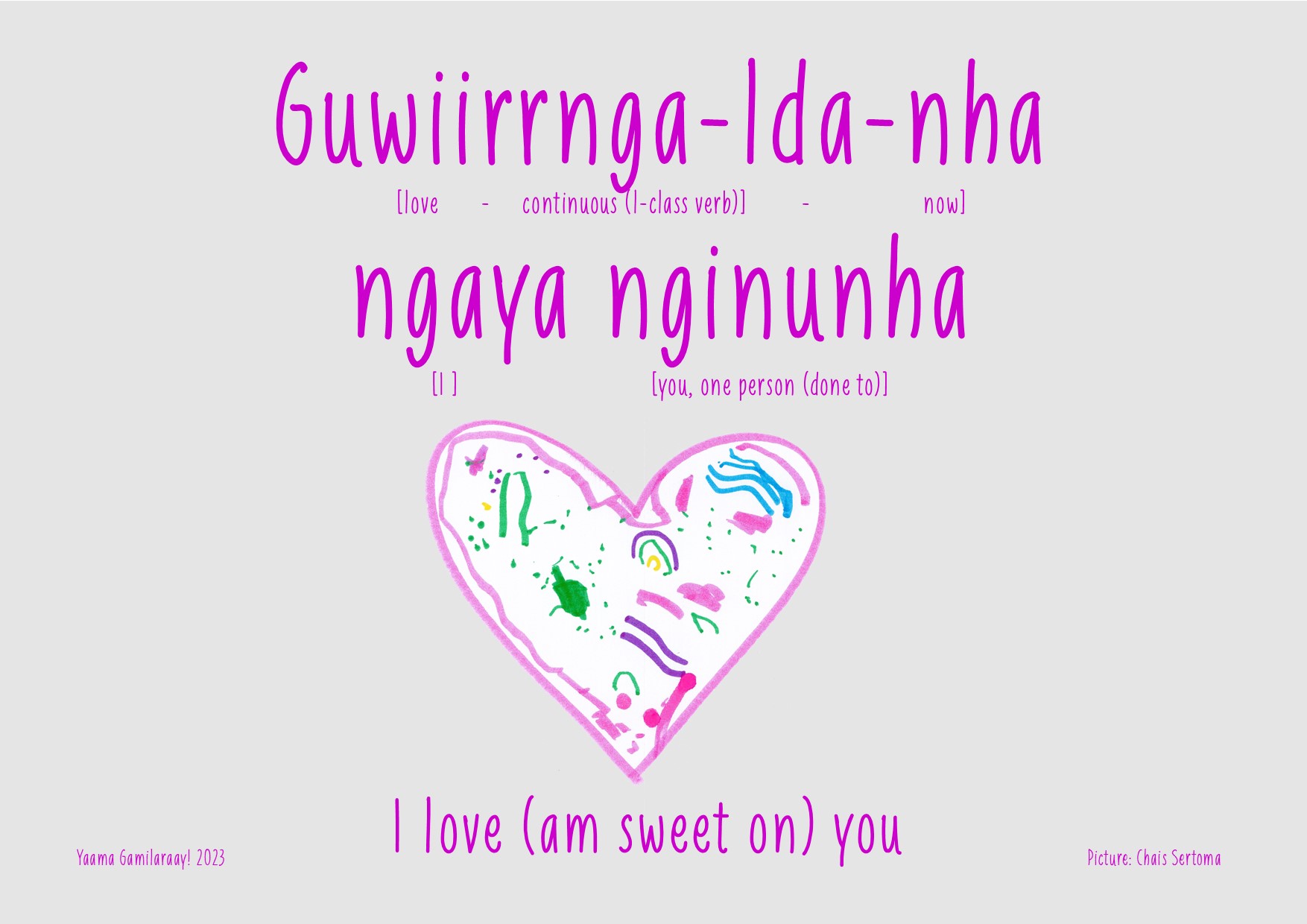 Other words are based on guwiirr ‘sweet’, e.g. guwiirra ‘sweetheart’ (also ‘eucalypt manna’, ‘mallee
willow’), and guwiirrnga-li ‘will love, be sweet on’.
Other words are based on guwiirr ‘sweet’, e.g. guwiirra ‘sweetheart’ (also ‘eucalypt manna’, ‘mallee
willow’), and guwiirrnga-li ‘will love, be sweet on’.
Guwiirrnga-lda-nha ngaya nginunha; ‘I love you, I am
sweet on you’.
Download pdf: I-love-you-(romantic)-_2023.pdf
Another word is gambaay, 'sweetheart'. (This is in the GYY versions of Stand by
Me, sung in Gamilaraay by Castlereagh Connection https://www.youtube.com/watch?v=KdMOQSwigDc,
video https://www.youtube.com/watch?v=eXhYCYF7afM words in Gamilaraay
and Yuwaalaraay from Yugal 1 here: Stand-by-Me-(from-Yugal-1).pdf)
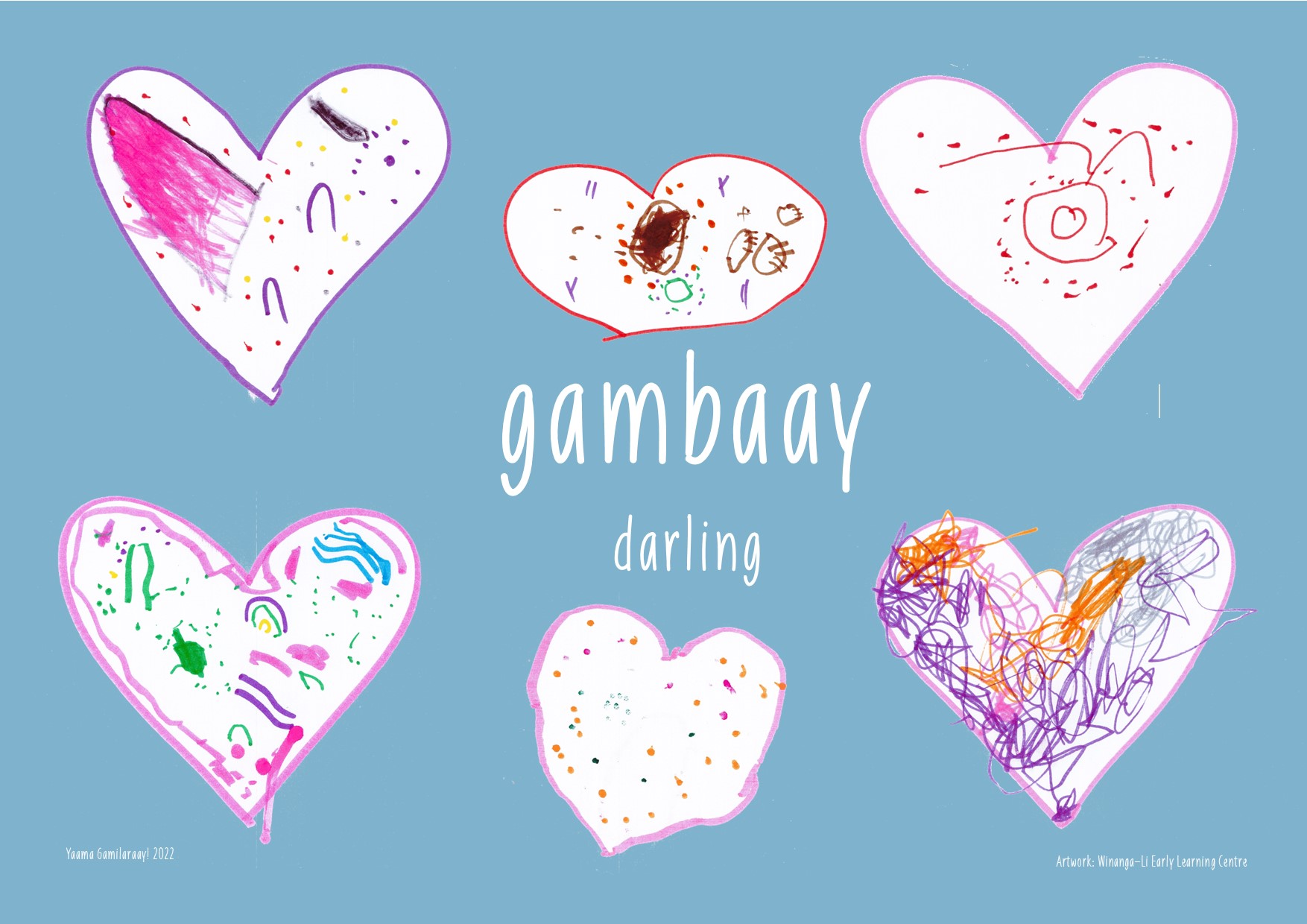
Sound: gambaay.mp3
Download pdf: gambay_2022.pdf
Here is Meya Taylor with the two phrases for "I love you".
The grammar of love
Winanga-li and Guwiirnga-li are both transitive verbs. This means that someone does something to someone - this is shown in the grammar so that nginda (‘you, 1 person’) changes to nginunha (‘done to you, 1 person’).
In English we have this change too, but the word for ‘you’ does not change in ‘I love you’ in the same way that ‘he’ changes in ‘I love
him’.
Follow up
To read more on emotions, particularly love, in Australian languages:
https://www.emotionlanguageaustralia.com/lovedesirejealousy

